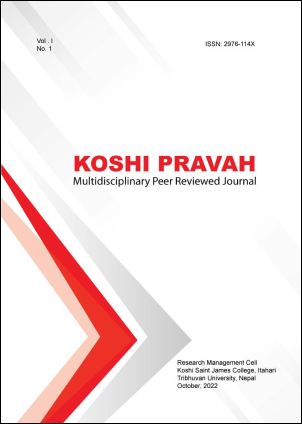Socio-Economic Impact of Joint Land Ownership on Women Empowerment: A Study of Sunsari, Nepal
DOI:
https://doi.org/10.3126/koshipravah.v1i1.57375Keywords:
socio-economic characteristics, joint land ownership, women, empowermentAbstract
This study tests the socio-economic impact of joint land ownership (JLO) on women empowerment of Sunsari, Nepal using two period panel data before and after JLO of the same respondents since 2015 to 2020 AD. As the nature of data properties, logistic regression model is employed. The research includes the standard indicators to quantify the status of JLO and its socio-economic impact on women empowerment. In this study, status of women empowerment before and after JLO is indicated by JLO land location as dependent variables and land size, income, occupation, ethnicity, household size, housing condition, household decision, cooperative member, property ownership as independent variables measured in percentage. Logistic regression result shows statistically significant impact of JLO on land size, occupation, ethnicity, household decision and cooperative membership having p-value less than 5 percent. The estimated results from the econometric estimation suggests appropriate policy correction to participate women in JLO program for their socioeconomic empowerment through JLO in Nepal.




